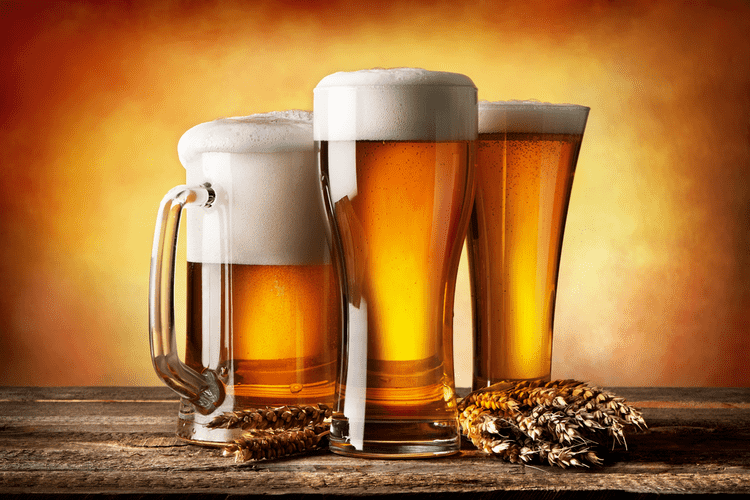This doesn’t count as the average number of drinks per day throughout the week. By seeking support and https://gamingzonehub.site/how-to-detox-from-alcohol-5-essential-tips-for-a/ utilizing available resources, individuals can find the guidance and encouragement needed to navigate their recovery journey successfully. A person might need to be sedated “until withdrawal is complete” if it is extremely intense. Someone who just abuses alcohol regularly will not have to go through this, though they will probably need some treatment of their own. Like any drug, long-term exposure can directly impact your brain and negatively affect your mood, behavior, and cognitive ability.
Mental Health Resources
- A person can be intoxicated at several points throughout their lifetime and not abuse alcohol.
- Our state-specific resource guides offer a comprehensive overview of drug and alcohol addiction treatment options available in your area.
- Unfortunately, this can exacerbate their symptoms and lead to a cycle of dependence and unhealthy coping mechanisms.
- Individuals who struggle with alcohol abuse often find it challenging to set boundaries or adhere to moderate drinking guidelines.
It is characterized by a strong craving for alcohol, a loss of control over consumption, and physical withdrawal symptoms when consumption is stopped. It can lead to serious health problems, financial problems, and social isolation. Recognizing the signs and symptoms of alcoholism and alcohol abuse is crucial for understanding the distinction between the two and seeking appropriate help. While there are similarities in some of the signs, there are also key differences that set them apart. When it comes to alcohol-related issues, it’s essential to understand the distinction between alcoholism and alcohol abuse. While these terms are often used interchangeably, they represent different stages and patterns of alcohol consumption.
How Do I Know if I Have an AUD or Alcoholism?
Pharmacological treatments show promise, with medications like what is the difference between alcohol abuse and alcoholism aripiprazole and antihypertensive drugs like prazosin and doxazosin targeting the brain’s reward system to reduce cravings. Medication-assisted treatment (MAT) for opioid use disorder is expanding to include alcohol abuse, potentially revolutionizing care access and outcomes. While specific medications have been identified, more research is needed to fine-tune their application for alcohol abuse. Physically, alcohol abuse can cause heart, liver, and pancreas problems, including inflammations like pancreatitis.
Short-Term Effects
However, alcohol abuse increases your chances of developing a more serious problem over time. Individuals with alcohol use disorder need professional help to overcome their condition. If you’re afraid your drinking problems are spiraling out of control, Alvarado Parkway Institute can help you get your life back on track. Whether you’re struggling with alcohol abuse or alcohol dependence, our alcohol rehab center in San Diego provides a safe, supportive, and caring environment for your road to recovery.

What’s the Difference?
In an inpatient setting, you’ll receive addiction treatment while residing in a facility. These people aren’t able to resist drinking if they aren’t continuously monitored in a controlled environment. You might experience withdrawal symptoms regardless of your addiction severity. In addition to these treatment approaches, there are various resources available to support individuals on their journey to recovery. These resources may include educational materials, helplines, support groups, and community-based organizations. It’s important to note that experiencing one or more of these signs does not necessarily mean a person has alcoholism.
Alcoholics Anonymous and other support groups bring together people with AUD in a safe space. Learn about what has (and hasn’t) worked for others and lean on them for help when times get tough. It’s important to understand the difference between these two disorders in order to seek appropriate treatment. Verify your insurance today – treatment could be more affordable than you think. As you recover from AUD, you may find it helpful to see a psychotherapist who uses cognitive behavioral therapy (CBT) techniques.
Essentially, alcoholism is the point at which alcohol abuse becomes alcohol addiction. Though some people may view terms like “alcoholic” as unhelpful or negative, many still use this term to describe their experience with AUD. Alcoholics Anonymous (AA), for example, uses terms related to alcoholism to describe those in recovery (6). Alcohol use disorder (AUD) is now the clinically accepted term used by doctors and mental health professionals. You develop a tolerance to alcohol over time, and then that requires you to increase the amount you drink to get the desired effects.
- Alcohol is a toxic substance even in small levels so it’s better to avoid it if you can.
- There are three categories of alcohol use disorder—mild, moderate, and severe.
- There is no obligation to enter treatment and you can opt out at any time.
- You can attend a 12-step program like Alcoholics Anonymous or, if your symptoms are more severe, you can find an alcoholism treatment program.
This was done because healthcare officials wanted to reduce the stigma around the condition, which can cause feelings of guilt and shame, preventing a person from seeking help. Knowing the difference between these terms is a great starting point for understanding how substance use disorders work. In this piece, we’ll outline the meaning of these labels and explore how they’ve evolved over time. Increased tolerance, missed responsibilities, or mood changes may appear before more obvious problems develop. Aftercare planning includes follow-up therapy, wellness check-ins, or sober living options. These tools help you stay engaged in recovery and reduce the chance of returning to past patterns.
Understanding the Difference Between Alcohol Abuse and Alcoholism

Seeking professional help and support is crucial for individuals struggling with alcohol abuse to prevent further harm and achieve a healthier relationship with alcohol. Alcoholism, also known as alcohol dependence, is a chronic and progressive disease characterized by an individual’s inability to Sober living house control or stop drinking despite negative consequences. People with alcoholism develop a physical and psychological dependence on alcohol, leading to a compulsive need to consume it regularly. Alcohol abuse, as delineated by the National Institute on Alcohol Abuse and Alcoholism (NIAAA), refers to a pattern of drinking that results in significant and recurrent adverse consequences.
Inpatient Opioid Rehabilitation Centers in Central Florida
- If you abuse alcohol, you have patterns of drinking that lead to impairment or cause you distress, but these don’t necessarily meet the criteria for dependence or addiction.
- Psychosocial treatments, such as cognitive-behavioral therapy (CBT), are widely used and focus on altering drinking behavior through skill development and coping strategies.
- Verify your insurance today – treatment could be more affordable than you think.
- Addressing alcohol abuse and alcoholism requires a multifaceted approach that includes a range of treatment options tailored to individual needs.
For instance, both may involve neglecting responsibilities, experiencing relationship difficulties, and continuing to drink despite negative consequences. However, the key distinction lies in the severity and impact of these symptoms on an individual’s life. Alcoholism, a chronic disease characterized by a loss of control over drinking and changes in brain regions, necessitates comprehensive treatment approaches. Recent advancements in understanding the molecular targets for alcohol use disorder (AUD) have led to the development of innovative pharmacological treatments. These include medications like aripiprazole, which affects dopamine and serotonin receptors, alpha-1 blockers such as prazosin and doxazosin, and neurokinin-1 antagonists.
Both alcohol abuse and alcoholism can have detrimental effects on an individual’s personal life, relationships, and overall well-being. However, alcoholism often leads to severe physical, mental, and social consequences, including liver disease, cognitive impairment, depression, and strained personal relationships. Alcoholism involves a strong craving for alcohol, continued use despite repeated problems, the inability to limit drinking, and physical withdrawal symptoms when one tries to stop. It is a chronic, relapsing brain disease that affects individuals both psychologically and physically.
If you’re ready to take the first step toward a healthier, alcohol-free life, contact Ardu Recovery Center today. Although it is best to consult with a medical professional for expert advice, you can do a quick self-check. Ask yourself whether you have any of the symptoms listed above and see how many apply to your life.